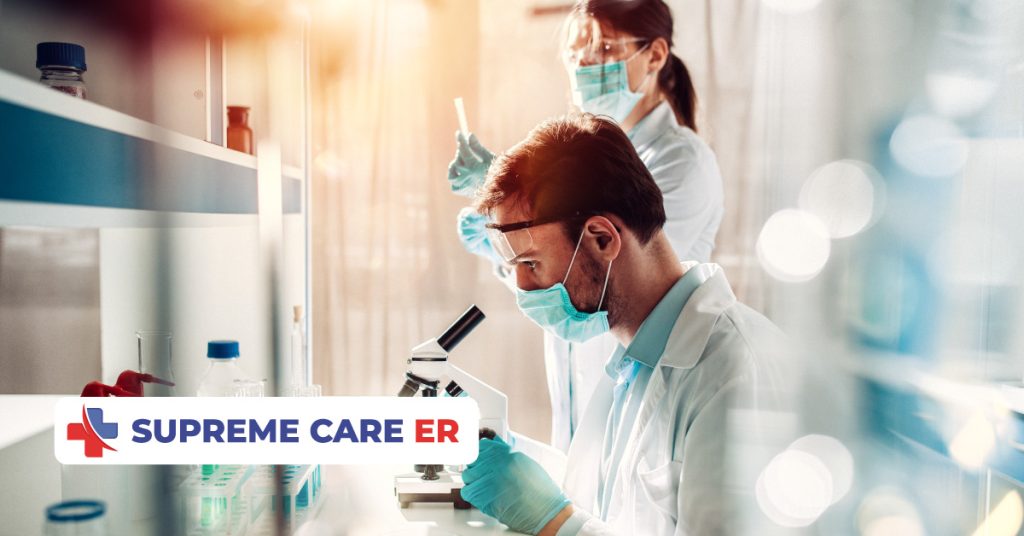Following the covid-19 pandemic, several industries have had to close their doors to operations and adapt to a remote workspace, requiring significant changes in their operation mode.
As vaccine distribution becomes more widespread, many companies are transitioning back to the workplaces,
They are making efforts to provide a healthy working environment in compliance with the Centers for Disease Control and Prevention (CDC) and Occupational Safety and Health Administration (OSHA) coronavirus (COVID-19) safety guidelines by implementing a COVID-19 test to prevent the potential spread of this disease.
The need for businesses to screen for COVID-19
Employee screening aims at detecting COVID-19 at an early stage, even if the person shows no symptoms. However, it is essential to note that screening does not replace other preventive measures but maybe a helpful complement in reducing the risk of infection at workplaces.
Other benefits of employee screening and testing include:
Ensure a Safe Working Environment
Considering that COVID-19 spreads so fast, causing disturbing symptoms in many of those that contract the virus since the first outbreak, providing screening and testing kits will help relieve reopening anxiety and make an employee feel comfortable returning to the physical office.
Prevent Loss of Workforce
As a first step toward building a multi-dynamic protection plan, you may wish to consider employee screening and testing. This provides vital health information to prevent significant percentage losses of workers.
Identify Infected People
In the case of an outbreak of COVID in a workplace, a screening will likely test positive for nearly everyone who was in contact with that individual, so employers need to be proactive in making COVID-19 screening available to every employee to keep the spread to a minimum.
Antigen tests for screening
Antigen tests can help screening; however, they are not as sensitive and accurate as a PCR test. It means you might have COVID-19 and a false negative result. Most employers prefer antigen tests because they are readily available, provide a quick result in the shortest time possible, and diagnose infected people before developing symptoms.
It is vital to confirm a positive antigen test result with a PCR test; however, you should take precautions and follow all COVID-19 protective measures to minimize the risk of spreading the virus.
How to Reduce Employee’s Risk of Exposure
Employers can effectively mitigate the exposure to workplace spread of COVID-19 by developing preventive measures and implementing response plans to isolate sick people for diagnosis, adhering strictly to government safety guidelines for infectious diseases, and implementing a workplace social distancing policy.
Other ways to reduce exposure to COVID-19 include:
Health Questionnaire
A health questionnaire can provide health-related information about your employees. You should provide an easily accessible digital questionnaire to avoid physical contact and a fast response rate. An employee with symptomatic complaints should be encouraged to quarantine at home.
Temperature Checks
While there is no definite temperature range to detect COVID-19, taking employees’ temperature with a contactless infrared thermal scanner can help prevent the risk of spreading this deadly virus. Employees experiencing a relatively high temperature should be denied access to the workspace until certified negative.
Cleanliness
Disinfecting exposed workplace surfaces such as doorknobs and table surfaces is critical in minimizing the risk of contracting COVID-19. RT-PCR technology effectively detects the presence of SARS-CoV-2(the virus causing COVID-19) on surfaces.
Regular hand washing and sanitizing are effective measures to reduce the risk of spreading COVID-19 within the workspace.
Health Apps
Health apps are an effective method for tracking employee health status and notifying the appropriate agencies to curb the spread of COVID-19 within a work environment.
Companies can provide isolation facilities to quarantine employees who fall sick at work to contain the spread of the disease.
While screening is a voluntary exercise, many people who test positive for COVID-19 may have no symptoms. If you suspect any signs of COVID-19, It is crucial to quarantine and confirm your status to minimize the risk of spreading this virus to your loved ones.








